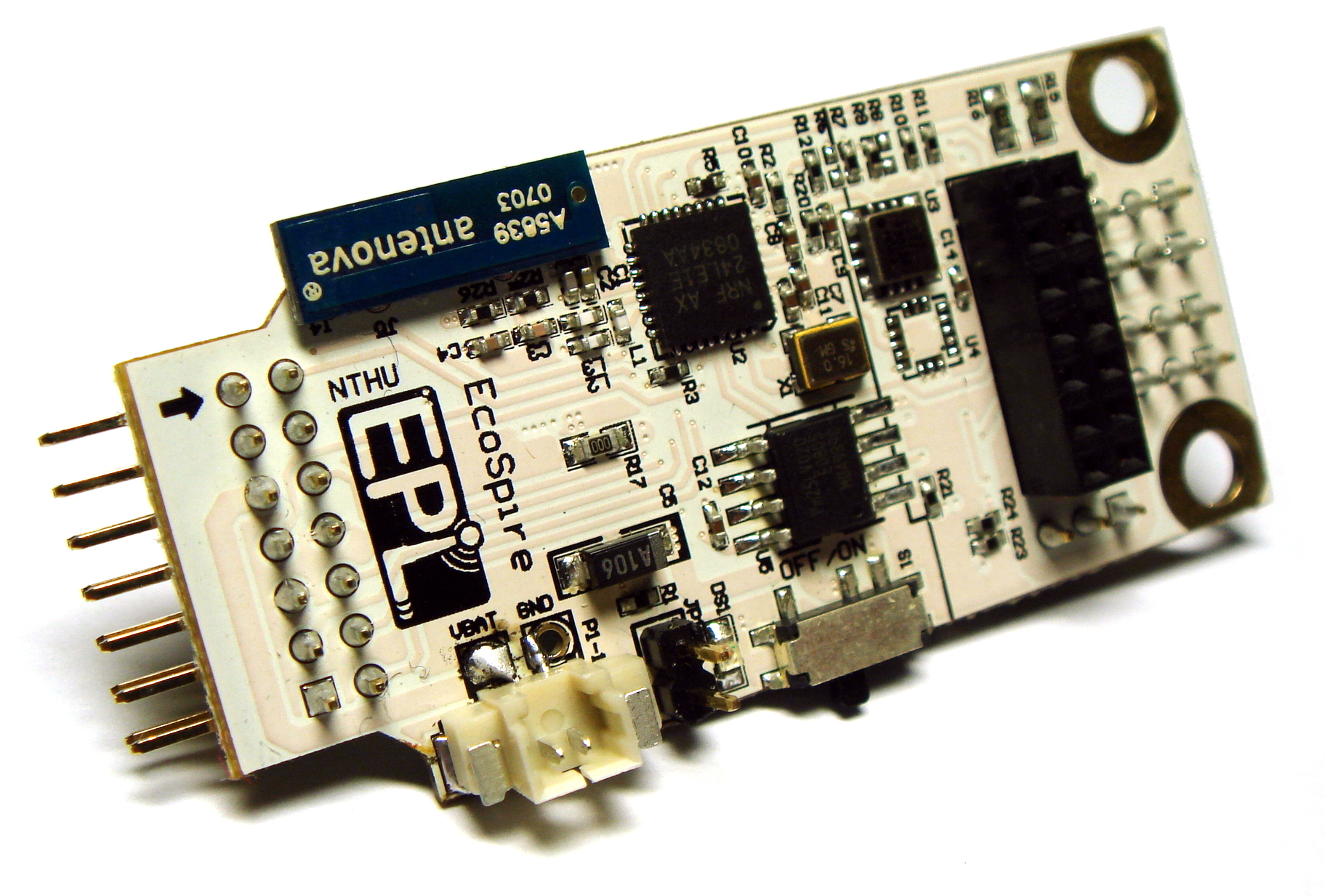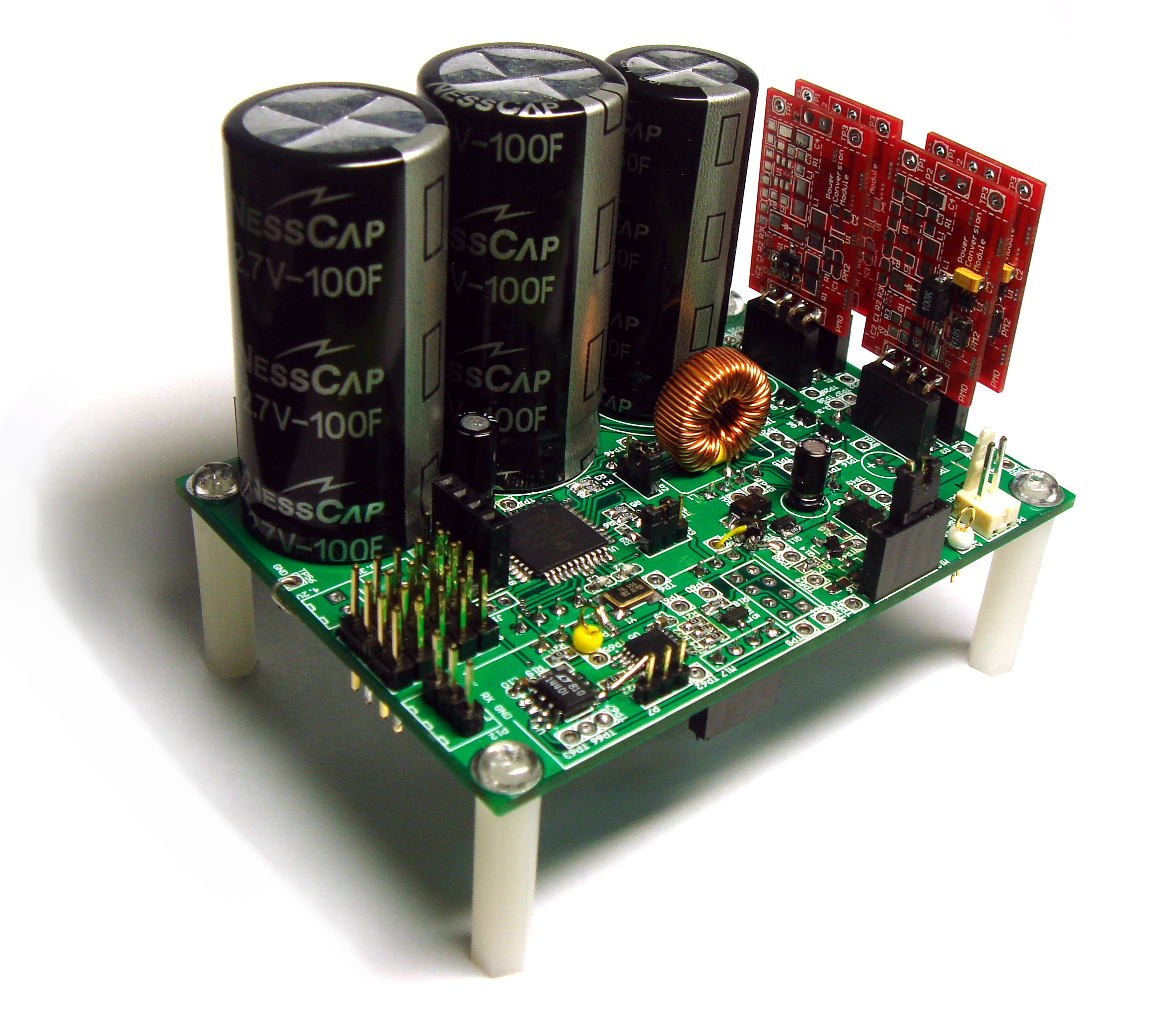-
Security in Real-Time Systems (RTS)
-
Security in Cyber-Physical Systems (CPS)
-
Software-Defined Control (SDC) for Smart Manufacturing Systems
-
Security in Internet-of-Things (IoT)
-
Wireless Sensor Network Platform: EcoSpire
-
Solar Energy Harvesting System: DuraCap
Closed Projects:
Security in Real-Time Systems (RTS)
(Scheduler Side-Channels and Schedule Obfuscation)
Status:
Closed(2014-2020)
Abstract:
This research is advised by Professor Sibin Mohan at UIUC. We examine various vulnerabilities caused by real-time properties and develop corresponding countermeasures while complying hard real-time constraints.
Related Funding:
- NSF, Award Number: 1718952, “An Exploration of Schedule-Based Vulnerabilities In Real-Time Embedded Systems” (NSF link)
Publications:
- Chien-Ying Chen, Debopam Sanyal and Sibin Mohan, “Indistinguishability Prevents Scheduler Side Channels in Real-Time Systems,” in ACM Conference on Computer and Communications Security (CCS), Nov. 2021.
- Jiyang Chen, Tomasz Kloda, Ayoosh Bansal, Rohan Tabish, Chien-Ying Chen, Bo Liu, Sibin Mohan, Marco Caccamo and Lui Sha, “SchedGuard: Protecting against Schedule Leaks Using Linux Containers,” in 27th IEEE Real-Time and Embedded Technology and Applications Symposium (RTAS), May 2021.
- Chien-Ying Chen, Sibin Mohan, Rodolfo Pellizzoni, Rakesh B. Bobba and Negar Kiyavash, “A Novel Side-Channel in Real-Time Schedulers,” in 25th IEEE Real-Time and Embedded Technology and Applications Symposium (RTAS), Apr. 2019. [slides] [demo]
- Chien-Ying Chen, Monowar Hasan, and Sibin Mohan, “Securing real-time internet-of-things,” Sensors 18.12, 4356, 2018.
- Chien-Ying Chen, Amiremad Ghassami, Sibin Mohan, Negar Kiyavash, Rakesh B. Bobba and Rodolfo Pellizzoni, “ScheduLeak: An Algorithm for Reconstructing Task Schedules in Fixed-Priority Hard Real-Time Systems,” (abstract only) in 1st IEEE Workshop on Security and Dependability of Critical Embedded Real-Time Systems (CERTS), Nov. 2016. [cite] [preprint]
- Man-Ki Yoon, Sibin Mohan, Chien-Ying Chen, Lui Sha, “TaskShuffler: A Schedule Randomization Protocol for Obfuscation Against Timing Inference Attacks in Real-Time Systems,” in 22nd IEEE Real-Time and Embedded Technology and Applications Symposium (RTAS), Apr. 2016.
Security in Cyber-Physical Systems (CPS)
(A Restart-Based Defense Technique)
Status:
Closed (2018-2019)
Abstract:
This research was led by Fardin Abdi (graduated from UIUC as CS Ph.D. in 2019) and advised by Professor Sibin Mohan and Professor Marco Caccamo at UIUC.
Related Funding:
- NSF, Award Number: 1718952, “An Exploration of Schedule-Based Vulnerabilities In Real-Time Embedded Systems” (NSF link)
- NSF, Award Number: 1646383, “Solar-powered, Long-endurance UAV for Real-time Onboard Data Processing” (NSF link)
Publications:
- Fardin Abdi, Chien-Ying Chen, Monowar Hasan, Songran Liu, Sibin Mohan, and Marco Caccamo, “Preserving Physical Safety Under Cyber Attacks,” IEEE Internet of Things Journal, 2018.
- Fardin Abdi, Chien-Ying Chen, Monowar Hasan, Songran Liu, Sibin Mohan and Marco Caccamo, “Guaranteed Physical Security with Restart-Based Design for Cyber-Physical Systems,” in the 9th ACM/IEEE International Conference on Cyber-Physical Systems (ICCPS), Apr. 2018.
- Chien-Ying Chen, “Technical Report for the Implementation of the Restart-based Framework,” Technical Report, 2018.
Software-Defined Control (SDC)
for Smart Manufacturing Systems
Status:
Closed (2016-2019, continued and led by Bin-Chou (Brian) Kao at SyNeRCyS in and after 2019)
Abstract:
This research project was a collaboration between the University of Michigan (leading team), the University of Illinois at Urbana-Champaign, and Cornell University. The work aimed to develop a software-defined approach to reconfigure smart manufacturing systems which enables agility for resiliency and quick response upon change of manufacturing plan or detection of anomalies. (project website)
Related Funding:
- NSF, Award Number: 1544901, “Software Defined Control for Smart Manufacturing Systems” (NSF link)
Publications:
- Yassine Qamsane, Chien-Ying Chen, Efe C. Balta, Bin-Chou Kao, Sibin Mohan, James Moyne, Dawn Tilbury and Kira Barton, “A Unified Digital Twin Framework for Real-time Monitoring and Evaluation of Smart Manufacturing Systems,” in 15th IEEE International Conference on Automation Science and Engineering (CASE), Aug. 2019.
- Mu Zhang, Chien-Ying Chen, Bin-Chou Kao, Yassine Qamsane, Yuru Shao, Yikai Lin, Elain Shi, Sibin Mohan, Kira Barton, James Moyne and Z. Morley Mao, “Towards Automated Safety Vetting of PLC Code in Real-World Plants,” in the Proceedings of the IEEE Symposium on Security & Privacy (S&P), May 2019. [slides]
- Matthew Potok, Chien-Ying Chen, Sayan Mitra and Sibin Mohan, “SDCWorks: A Formal Framework for Software-Defined Control of Smart Manufacturing Systems,” in the 9th ACM/IEEE International Conference on Cyber-Physical Systems (ICCPS), Apr. 2018.
Security in Internet-of-Things (IoT)
Status:
Closed (2016 and 2017 Summers)
Abstract:
This work was conducted by Internet of Things Security and Privacy Center in Computer Science Laboratory at SRI. The focus was on exploring security and privacy issues in IoT applications (from both user and developer’s perspectives) and proposing measures to predict and detect potential breaches ahead.
Publications:
- Ioannis Agadakos, Chien-Ying Chen, Matteo Campanelli, Prashant Anantharaman, Monowar Hasan, Bogdan Copos, Tancrède Lepoint, Michael Locasto, Gabriela F. Ciocarlie, and Ulf Lindqvist, “Jumping the Air Gap: Modeling Cyber-Physical Attack Paths in the Internet-of-Things,” in 3rd ACM Workshop on Cyber-Physical Systems Security & Privacy (CPS-SPC), Nov. 2017.
- Gabriela F. Ciocarlie, Ioannis Agadakos, Chien-Ying Chen, Matteo Campanelli, Prashant Anantharaman, Monowar Hasan, Ulf Lindqvist, Michael Locasto, Bogdan Copos, Tancrède Lepoint, and Michael Filippone, “Modeling cyber-physical attack paths in the Internet-of-things,” US Patent EFS ID 33452465, filed Aug. 2018, under review.
Wireless Sensor Network Platform: EcoSpire

Status:
Closed (2007-2009, continued as EcoBT in 2014)
Abstract:
This was the work of all members at Embedded Platform Lab (EPL) supervised by Professor Pai H. Chou at National Tsing Hua University (NTHU, Taiwan) during 2007-2009. CY, as a CS master student at NTHU, was the sole designer of the EcoSpire hardware and a collaborative developer of EcoSpire drivers.
EcoSpire is a hardware and software platform for wireless sensing applications. The hardware kit consists of two types of self-contained, expandable sensor nodes, as well as, a multipurpose base station and programmer, a cascadable charger, and sensor modules. The software kit consists of an integrated development environment (IDE) for application programming and RF debugging utilities on the host computer, plus a lightweight operating system with support for data logging and remote firmware reprogramming. Together, this package facilitates application development of ultra-compact, wearable wireless sensing systems.
Awards:
- Second Place – 2009 Embedded System Design Contest by Taiwan Ministry of Education
- Bronze Metal – 2009 Telecom Innovation & Application Contest by Chunghwa Telecom
Publications:
- Chien-Ying Chen, Yu-Ting Chen, Yi-Hsuan Tu, Shun-Yao Yang, and Pai H. Chou, “EcoSpire: An Application Development Kit for an Ultra-Compact Wireless Sensing System,” in IEEE Embedded Systems Letters, Vol. 1, No. 3, October 2009, pages 73-76, (version published February 2010). ISSN 1943-0663.
- Plagiarized by D. Prasad and P. Rahul Reddy as ” Development of a Hardware and Software Platform for Wireless Sensor Networks “, in International Journal of Emerging Trends in Electrical and Electronics (IJTEE), ISSN 2320-9569, Volume 11, Issue 4, July 2015, pp. 15-19.
Solar Energy Harvesting System: DuraCap

Status:
Closed (2008-2009, later on continued by Professor Pai H. Chou at UC Irvine)
Abstract:
DuraCap was advised by Professor Pai H. Chou as CY’s CS master’s thesis at NTHU.
DuraCap is a solar-powered energy harvesting system that stores harvested energy in supercapacitors and is voltage-compatible with lithium-ion batteries. The use of supercapacitors instead of batteries enables DuraCap to extend the operational life time from tens of months to tens of years. DuraCap addresses two additional problems with micro-solar systems: inefficient operation of supercapacitors during cold booting, and maximum power point tracking (MPPT) over a variety of solar panels. Our approach is to dedicate a smaller supercapacitor to cold booting before handing over to the array of larger-value supercapacitors. For MPPT, we designed a bound-control circuit for PFM regulator switching and an I-V tracer to enable self-configuring over the panel’s aging process and replacement. Experimental results show the DuraCap system to achieve high conversion efficiency and minimal downtime.
DuraCap is a solar-powered energy harvesting system that stores harvested energy in supercapacitors and is voltage-compatible with lithium-ion batteries. The use of supercapacitors instead of batteries enables DuraCap to extend the operational life time from tens of months to tens of years. DuraCap addresses two additional problems with micro-solar systems: inefficient operation of supercapacitors during cold booting, and maximum power point tracking (MPPT) over a variety of solar panels. Our approach is to dedicate a smaller supercapacitor to cold booting before handing over to the array of larger-value supercapacitors. For MPPT, we designed a bound-control circuit for PFM regulator switching and an I-V tracer to enable self-configuring over the panel’s aging process and replacement. Experimental results show the DuraCap system to achieve high conversion efficiency and minimal downtime.
Publications:
- Chien-Ying Chen and Pai H. Chou, “DuraCap: a Supercapacitor-Based, Power-Bootstrapping Maximum Power Point Tracking Energy-Harvesting System,” in Proc. ACM/IEEE International Symposium on Low Power Electronics and Design (ISLPED), Austin, TX, USA. August 2010. pp. 313-318.
- Chien-Ying Chen, “DuraCap: a Power-Bootstrapping, Maximum Power Point Tracking Energy-Harvesting System,” Master Thesis, National Tsing Hua University (Taiwan), 2009.
- Chien-Ying Chen and Pai H. Chou, “Energy Harvesting System”, US Patent NO.8188703 (B2), 2012
- Chien-Ying Chen and Pai H. Chou, “Energy Harvesting System”, Taiwanese Patent NO.99100899, 2013